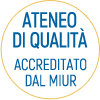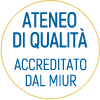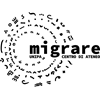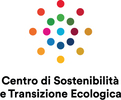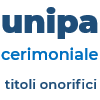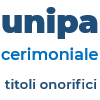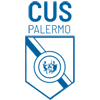Degree course in VITICULTURE AND OENOLOGY (Codice 2138)
WEB SITE VITICULTURE AND OENOLOGY
Educational objectives
The Degree course in Viticulture and Oenology aims at providing core competences in the fields of biology, process technology and business economics related to wine and table grape growing, to the production and qualitative evaluation of grapes and wine.
The Course also provides core competences in business and market economics and law, as well as competences related to the main methodologies and techniques for oenological analysis, and to the implementation and management of the actions in the wine-growing and oenological field which are needed to manage the whole wine supply chain. Graduates of this course acquire basic groundings in propaedeutic subjects such as mathematics, statistics, physics, chemistry, plant biology and agricultural genetics, which are indispensable for understanding the foundations of specific professional subjects.
These competences enable graduates to achieve a professional training including the principles of biochemistry and microbiology, the elements of soil sciences, watering plants, wine growing and protection techniques, wine production, product quality control and economic management of the wine supply chain. The course provides competences related to the biology of vine and pro-technological and spoilage organisms, to issues related to the physical, chemical and biological quality of soils, to the planting of the vineyard and its agronomic management, to the wine-making process technologies, to the chemical-physical, sensory and microbiological tests for the control of wine production processes, for the execution of operations aimed at achieving the best result obtainable in the wine productive sector.
Likewise, they will acquire knowledge about the main industry regulations and the principles of business economics and valuation needed for autonomous professional activities such as the planning, development and management of wine companies, the valuation of land, technical equipment, plants and wine products. The profile requires the dialectical skills needed to disclose and argue one's own technical ideas with specialists and non-specialists, as well as the command of English language or of another European language, which is necessary for reading and interpreting technical texts, for professional exchanges and for basic dissemination activities.
The training acquired allows graduates to carry out their professional activity in all European Union Countries. They may operate, as junior professionals, in the following fields:
- management, administration and advice in companies for the production and processing of grapes and derived products, aging, storage, bottling and marketing of wines;
- management, administration and advice on wineries, with particular reference to the choice of variety, to the vineyard plant, the conduct and the phytosanitary aspects of vineyards;
- direction and performance of wine-related functions in organizations, associations and consortia;
- execution of microbiological, chemical, physical and sensory analysis of grapes, musts and wines with evaluation of the results for quality control and for the enhancement of the nutraceutical constituents of obtained products;
- collaboration in the business planning, in the choice of the best technology for the optimization of viticulture and oenological production processes; - organization of the distribution and marketing of wine products.
In addition, based on the general expertise acquired during the course, graduates in "Viticulture and Oenology" will carry out their activities in the food industry of products processed by fermentation. The educational activities will be carried out with lectures, tutorials and laboratory and field tests as well as mid-term tests. Enrolments are regulated in accordance with the rules of access to higher education.
The Course is a limited access one, the number of eligible students is set every year by the School Board. The admission exam consists of a written multiple choice test about general and scientific culture and the assessment of qualifications. This test also enable the assessment of students scientific and cultural groundings. The course lasts three academic years.
To achieve the degree, students should have acquired 180 credits (CFU), including the ones related to the knowledge of an European Union language, besides Italian, subject to the special rules for the protection of linguistic minorities. The educational programme provides for 19 mandatory examinations, 12 elective credits, professional English, computer science, chemistry, sensory analysis, water plants and measurements laboratory activities, a practical training period in acredited facilities (6 credits) and the final examination about specific course issues (3 credits). The 12 elective credits may be acquired, in accordance with article 10, paragraph 5, letter a) of DM 270/04, choosing freely among teachings provided by other courses of the Department of Agriculture, Food and Forestry Sciences, of other Departments of the University of Palermo and other Italian and foreign Departments and Universities. At the end of the course, students obtain the title of “Dottore in Viticultura ed Enologia” and, after passing the professional qualification examination, they may register in Section B (Dottore Agronomo Junior) of the professional Board. Graduates of this course will also qualify for the profession of Oenologist in Italy, in accordance with Law 129/91.
Professional opportunities
Profile: Oenologist, junior agronomist, food technician Functions: The acquired competences allow to operate, within the sphere of the competences envisaged for the junior professional according to the aforementioned law, in the following fields:"management, administration, as well as advice in wineries for the production and processing of grapes and derived products, refinement, conservation, bottling and marketing of wines.
Skills: management, administration, as well as consultancy in wineries, with particular reference to the varietal selection, the vineyard plant, the management and phytosanitary aspects of the vineyards; "wine and wine-growing management and functions in bodies, associations and consortia," execution of microbiological, chemical-physical and sensory analyzes of grapes, musts and wines with evaluation of the results for quality control and for the valorisation of nutraceutical constituents of the products obtained; "collaboration, in the design phase of companies, in the choice of the functional technology for the optimization of wine and winemaking production processes;" company organization of the distribution and marketing of wine products opportunities: On the basis of the general skills acquired during the course of study, the Graduate in "Viticulture and Oenology" will be able to carry out its activities in the food industries of products transformed by fermentation, in wineries, playing the role of oenologist and in associated studies of wine advice. in addition, the degree allows you to personally manage a company with a wine-growing address for planting and managing the vineyard, processing and marketing the product. The degree in Viticulture and Oenology allows access to the Inter-university Master's Degree in Viticulture and Oenological Sciences.
Final examination features
To obtain the degree in Viticulture and Oenology students must: - have acquired the 180 university credits related to core, characterizing, integrative subjects, to elective courses, to the knowledge of a foreign language and of computer skills, including 6 credits related to a training period at a facility of the University or other public or private agency, as required by the academic regulations and the 3 credits related to the final examination. The final test aims at assessing the level of maturity and critical skills of the undergraduate, with respect to learning and to acquired knowledge, on completion of the activities provided by the course syllabus. The final examination consists of an oral test, in accordance with the rules fixed by the Degree Course Regulations for the final examination, respecting and consistent to the calendar, the ministerial requirements and to the relevant Guidelines of the University.




